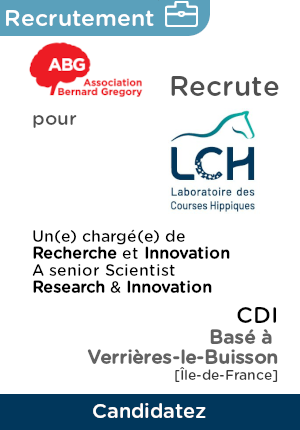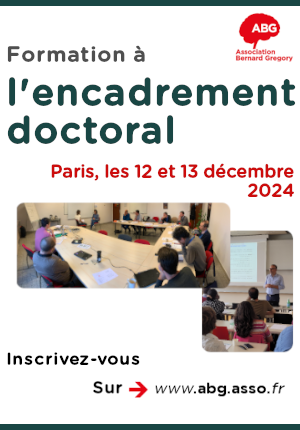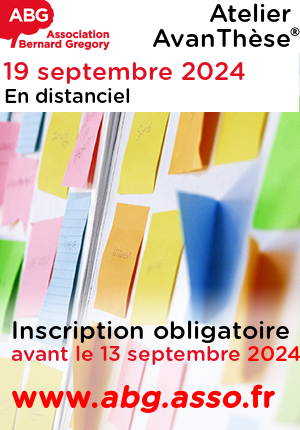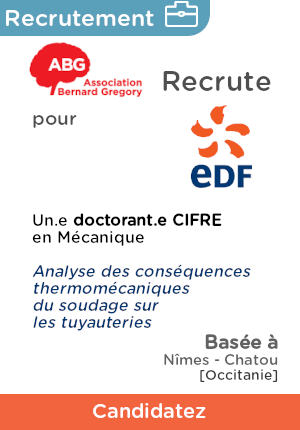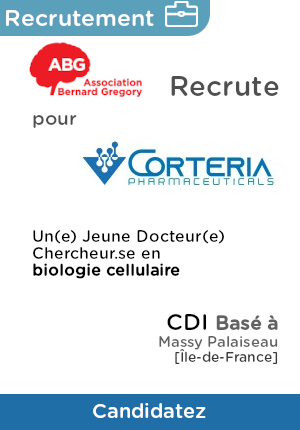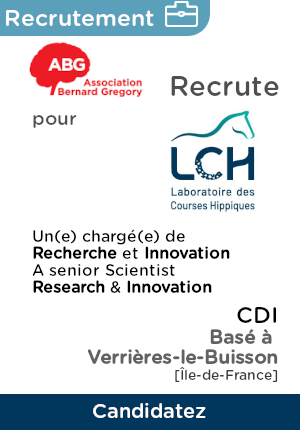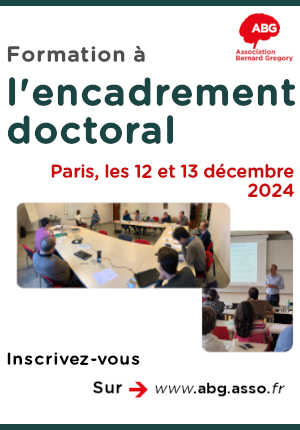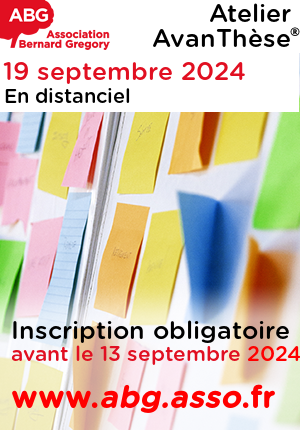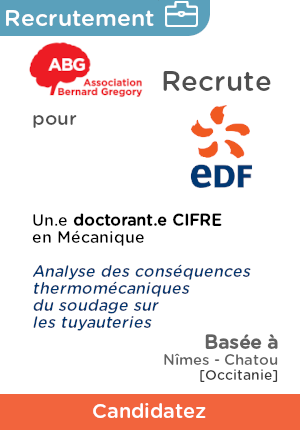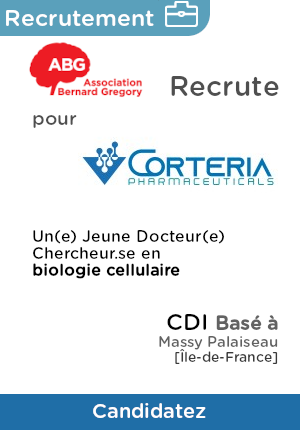Post-doc In Surgical Data Science for Laparoscopic Surgery
| ABG-123423 | Emploi | Confirmé |
| 08/07/2024 | CDD 18 Mois | > 25 et < 35 K€ brut annuel |
- Santé, médecine humaine, vétérinaire
- Science de la donnée (stockage, sécurité, mesure, analyse)
Employeur
The TIMC laboratory gathers scientists and clinicians towards the use of computer science and applied mathematics for understanding and controlling normal and pathological processes in biology and healthcare. This multi-disciplinary activity both contributes to the basic knowledge of those domains and to the development of systems for computer-assisted diagnosis and therapy.
The CAMI team (Computer Assisted Medical Interventions or GMCAO in French for Gestes Médico-Chirurgicaux Assistés par Ordinateur) has been pionneering the development of medical devices assisting medical interventions for more than three decades.
In France, the team’s name (CAMI) is a standalone research area. The first French surgical robot, developed by the team for stereotaxis neurosurgery, has been used for the first time in 1989 on a patient. The mentioned robot was also one of the first surgical robots worldwide. Since then, the team has always been innovating in scientific research as well as in clinical investigations. The constant need in quality of medical interventions and the ever-growing trend in minimally invasive surgery on ever-smaller targets, using early diagnosis are endlessly stimulating the team’s challenges.
Inspired by the clinical needs and immersed in the university hospital environment, we conduct research in medical image processing, data fusion, biomechanical modeling and simulation, as well as medical robotics. Based on the experience of three decades, our team develops translational research in close partnership with clinicians and specialists in clinical evaluation methods.
In order to benefit to patients and to the healthcare system in general, multiple results are transferred to industrial partners for use in routine medical applications. Further, several spin-offs have been created by our team. Spreading our research on a large scale allows evaluation with respect to the reality of clinical practices. In a virtuous manner, this approach feeds back our team with growing challenges to perform cutting-edge research.
Site web :
Poste et missions
We (TIMC Lab, Grenoble, France; LIRMM Lab Montpellier, France; NTNU, Trondheim, Norway) built a unique dataset to develop new methods for understanding surgical skills, in the aim of providing formative feedback to laparoscopy students. Indeed, this type of minimally invasive surgeries requires the acquisition of specific technical skills, and a long learning curve. Our dataset comprises recordings of laparoscopic (videos + gestures) , and is enriched with information regarding this level of expertise (number of surgeries performed, status, and expert scoring of the exercises based on the assessment of different competencies using a validated score).
Using this data we have started developing explainable Deep-Learning based methods, and are looking for a postdoctoral fellow to work on these problematics. The candidate will be located in the TIMC Laboratory, in Grenoble, France, and will be part of an internationally recognized group working on Computer Assisted Interventions. A strong involvement in the sharing of the dataset and the organization of challenges will be expected.
Mobilité géographique :
Télétravail :
Jusqu'à 2 jours / semaine
Prise de fonction :
Profil
PhD in Deep-Learning based signal/image processing, preferably with multimodal data.
• Previous experience in Deep Learning is a must.
• Previous experience in explainable AI will be a plus but is not mandatory.
• Previous experience in the curation & analysis of datasets will be a plus but is not mandatory
• Advanced Python programming skills (especially with torch / keras packages)
• Good command of English
Objectifs
* predict surgical scores using interpretable deep-learning methods from recordings of laparoscopic training sessions on test benches performed by clinicians at different levels of expertise.
* valorize an existing multimodal dataset (signal and images) by organizing a scientific challenge or publishing a research article
Vous avez déjà un compte ?
Nouvel utilisateur ?
Vous souhaitez recevoir nos infolettres ?
Découvrez nos adhérents
 TotalEnergies
TotalEnergies  Ifremer
Ifremer  Institut Sup'biotech de Paris
Institut Sup'biotech de Paris  SUEZ
SUEZ  Laboratoire National de Métrologie et d'Essais - LNE
Laboratoire National de Métrologie et d'Essais - LNE  Nokia Bell Labs France
Nokia Bell Labs France  ADEME
ADEME  Tecknowmetrix
Tecknowmetrix  MabDesign
MabDesign  ONERA - The French Aerospace Lab
ONERA - The French Aerospace Lab  Groupe AFNOR - Association française de normalisation
Groupe AFNOR - Association française de normalisation  CESI
CESI  MabDesign
MabDesign  PhDOOC
PhDOOC  Généthon
Généthon  Institut de Radioprotection et de Sureté Nucléaire - IRSN - Siège
Institut de Radioprotection et de Sureté Nucléaire - IRSN - Siège  ANRT
ANRT  Aérocentre, Pôle d'excellence régional
Aérocentre, Pôle d'excellence régional  CASDEN
CASDEN
-
EmploiCDIRef. ABG123642Laboratoire des Courses Hippiques (GIE LCH)Verrières-le-Buisson - Ile-de-France - France
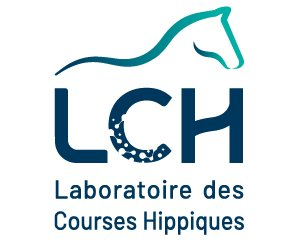
Chargé(e) de Recherche et Innovation (H/F) / Senior Scientist Research & Innovation (M/F)
Chimie - BiochimieConfirmé -
EmploiCDIRef. ABG124941Corteria PharmaceuticalsMassy-Palaiseau - Ile-de-France - France

Jeune Docteur, Chercheur en Biologie Cellulaire & Moléculaire (H/F)
BiologieNiveau d'expérience indifférent -
EmploiCDDRef. ABG125071KTHStockholm - Suède
ERC-funded postdoc position on the detection of gas-phase organic radicals, KTH, Stockholm, Sweden
Chimie - Physique - Sciences de l’ingénieurNiveau d'expérience indifférent

